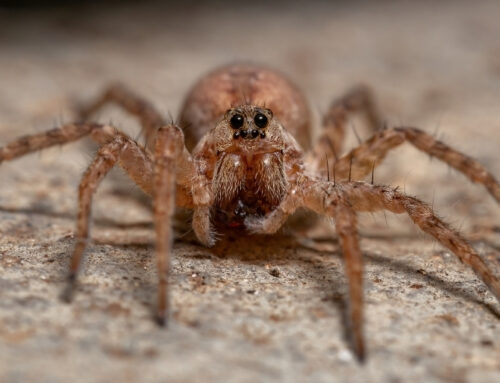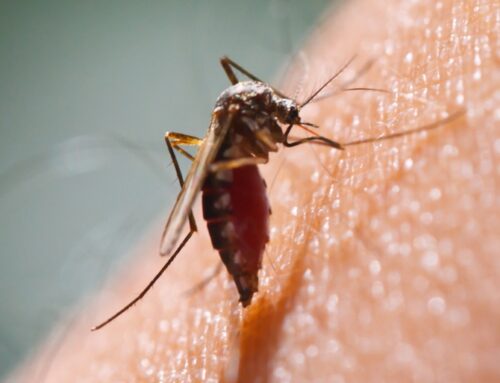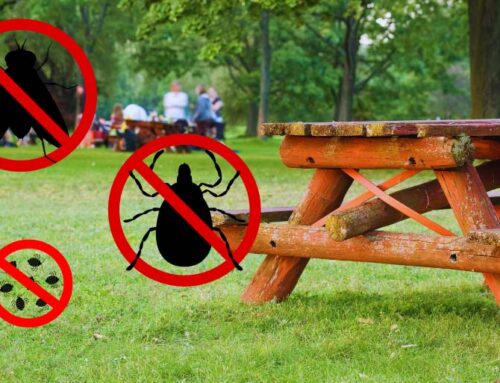Welcome to summer—a season of fun outdoor activities and, unfortunately, the peak time for unwelcome pests like mosquitoes, ticks, and ants. Effective summer pest control is crucial to keep these summer bugs at bay.
This guide delivers swift, effective strategies to manage these pests, ensuring they don’t spoil your summer enjoyment. From preventative tips to quick fixes, we’ll help you keep your home pest-free so you can focus on enjoying the sunshine.
Common Summer Pests and Their Dangers
As we continue to enjoy summer activities, staying vigilant against pests is crucial. Here’s how you can safeguard your summer from these unwelcome guests:
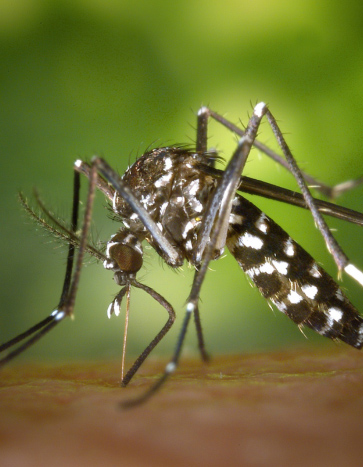
Mosquitoes
Often just a buzz away, mosquitoes are notorious not only for their itchy bites but also for spreading diseases like West Nile Virus and Zika. Minimize their breeding by clearing out standing water from containers such as bird baths and old tires.
Enhance your home’s defenses with window and door screens, and protect yourself with EPA-approved repellents and light-colored clothing when outdoors. Additionally, consider setting up fans in outdoor areas; mosquitoes are poor flyers in windy conditions.
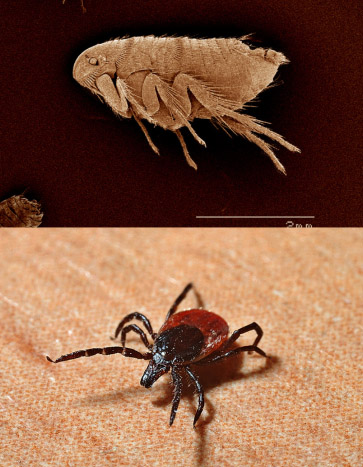
Fleas and Ticks
These pests are not only a concern for pet owners but for anyone enjoying green spaces. Regular yard maintenance, such as mowing and removing debris, is essential to reduce their hiding spots.
Protect your pets with approved flea and tick treatments and perform regular checks especially after outdoor activities. For broader control, treat your yard with pet-safe pesticides and establish barriers like gravel or wood chips to prevent ticks from entering recreational areas.
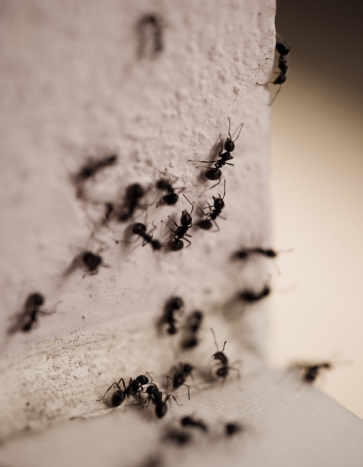
Ants
Ants in the kitchen are a common summer nuisance, often attracted by the smallest of food remnants. To deter these persistent invaders, it’s crucial to store all edibles securely in sealed containers and address any spills or crumbs without delay. You can also create natural barriers at doors and windows using solutions like vinegar or diluted essential oils.
Should you encounter a trail of ants, a quick spray of soapy water can help erase their scent trails, confusing their pathfinding. For areas where ant activity is intense, setting up bait stations can decisively reduce their numbers by eliminating the colony from within.
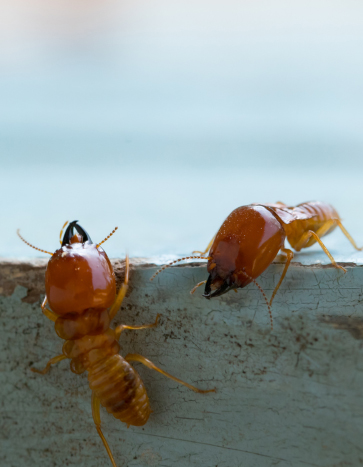
Termites
Termites often work silently, causing significant damage that you might not notice until it’s too late. To safeguard your home, stay vigilant for early signs of their presence. Are your wooden structures sounding hollow when you tap them? Do you see thin mud tubes along your walls? Or have you spotted swarmers—winged termites ready to start new colonies? These are clear warnings.
Act swiftly by clearing away wood debris from around your house and ensuring that your foundation areas remain dry, as moisture attracts termites. If you spot these indicators, don’t wait—consult a licensed pest control expert to evaluate and treat the problem, preventing further damage and securing your home against future invasions.
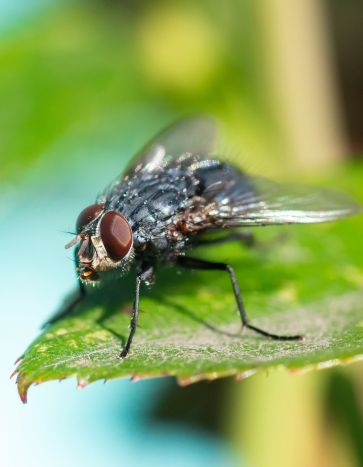
Flies
Despite their small size, flies can be a major sanitary nuisance in homes, carrying pathogens that can lead to illness. Effective fly management starts with hygiene—regularly dispose of trash and seal waste containers. Install screens on windows and doors to block their entry.
For a DIY solution, create a trap using a mix of sugar water and dish soap in a jar covered with plastic wrap pierced with small holes; this will attract and trap them. Additionally, planting fly-repelling herbs like basil and mint near entry points can serve as a natural deterrent, helping to keep your indoor spaces fly-free.
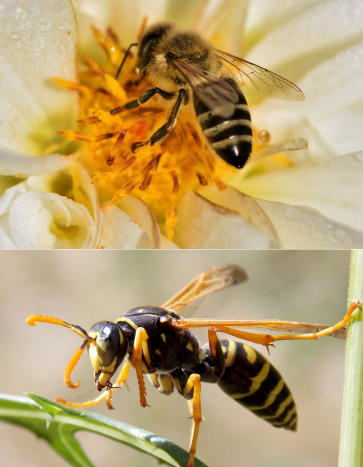
Stinging Insects (Bees, Wasps, etc.)
Bees and wasps are important for the ecosystem but can become a hazard if they nest too close to human activity. If you discover a nest on your property, exercise caution. Avoid any interference during their active periods in the day. If the nest isn’t in a high-risk area, consider leaving it undisturbed to allow the insects to contribute to local pollination.
However, if the situation poses a safety threat, especially for those with allergies, it’s wise to call in pest control experts who can remove or relocate the nest safely. To prevent these insects from being attracted to your area in the first place, ensure that food remnants and sugary drinks are not left out in open spaces.
Preventive Measures to Protect Your Home
As you get ready to enjoy the warmer months, it’s crucial to also prepare your home against unwanted pests. We’ve gathered a mix of both well-tried and innovative strategies to help you create a pest-resistant environment effortlessly.
Let’s dive into how you can keep your home comfortable and pest-free with methods that are easy to implement and effective.
Optimizing Your Home’s Defense Against Pests:
Innovative Natural Deterrents:
Chemical Strategies with Caution:
Preventive Tips for Uncommon Pests:
By integrating these advanced and often overlooked strategies, you not only keep your home pest-free but also do so in a way that is safe for both your family and the environment. These methods ensure that your home remains a sanctuary against the intrusion of summer pests, combining innovation with safety and effectiveness.
Managing Pests in Your Yard
As we continue our guide to creating a pest-resistant environment, let’s focus on the yard—your first line of defense against seasonal pests. Effective yard maintenance not only keeps your space looking great but also significantly reduces pest problems.
Why Effective Landscaping Matters:
A well-maintained yard can deter pests before they become a problem inside your home. Here’s how to keep your outdoor spaces as pest-free as your indoors:
Tailored Tips for a Pest-Free Yard:
Adopting these strategies will not only beautify your yard but also fortify it against pests. Effective pest management is about more than just appearances; it’s about creating a consistently enjoyable and healthy outdoor environment. Stick with these practices, and your yard will be a place of relaxation and natural beauty all summer long.
Pet Safety During Summer
As we protect our homes and yards from pests, it’s equally important to ensure our pets are safe during the summer months. Here’s how you can protect your beloved animals from fleas, ticks, and other pests.
Key Tips for Protecting Your Pets:
By adopting these easy tips, you’ll help ensure your pets thrive during the summer months. Just like their owners, our furry companions love soaking up the sunshine, undisturbed by annoying pests. With your diligent care and preventive actions, your pets can fully enjoy every sunny day right by your side.
When to Call a Professional
After exploring numerous DIY pest control strategies, it’s important to recognize when these measures might not be enough, and professional help is required. Knowing when to call a pest control service can save you time and prevent infestations from escalating.
Key Signs You Need Professional Pest Control:
What to Expect from Pest Control Services:
By understanding these indicators and what professional services entail, you can make informed decisions about managing pest issues effectively. Sometimes, the expertise and advanced methods of a professional are what’s needed to ensure your environment remains conducive and secure.
DIY vs. Professional Pest Control
Choosing the right approach for summer pest control is crucial for keeping your home tranquil and free from pests. In this guide, we’ll explore the benefits and challenges of both DIY and professional options, helping you manage summer bugs effectively and choose the method that best suits your lifestyle.
DIY Pest Control:
Pros:
Cons:
Professional Pest Control:
Pros:
Cons:
When it comes to minor pest issues, going the DIY route can often suffice, offering a quick, cost-effective solution. However, if you’re facing a large-scale or dangerous infestation, professional services provide a safe, stress-free way to rid your home of pests.
Evaluate the severity of the infestation, your own capacity for effective pest control, and consider if investing in professional help might save you time and trouble in the long run.
Take Action to Protect Your Home and Health
Pest control isn’t just a chore—it’s essential for your well-being and the integrity of your living space, especially when dealing with summer bugs. Prompt intervention is key, whether you opt for DIY methods or professional summer pest control solutions.
Facing persistent or severe pest issues? Don’t let them escalate. Contact Bobcat Wildlife & Pest Control. Our team is ready to provide you with rapid, effective, and safe pest management solutions tailored specifically to your situation. We’re here to ensure your home remains a safe haven, free from unwelcome guests this summer.
Don’t wait—protect your home today. Reach out to us and take the first step towards maintaining a peaceful and secure environment for you and your family.
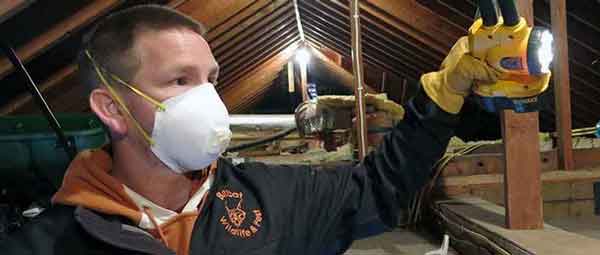
About the Author
Gene Spaulding, Owner and Founder of Bobcat Wildlife & Pest Management, has been at the forefront of pest and wildlife control since 2008. With over 17 years of hands-on experience, Gene combines his expertise and passion to deliver effective and humane pest management solutions to homeowners and businesses across the Des Moines Metro area. Guided by the motto “Your Property, Our Priority,” Gene ensures that Bobcat Wildlife & Pest Management remains a trusted partner for comprehensive pest and wildlife services.

